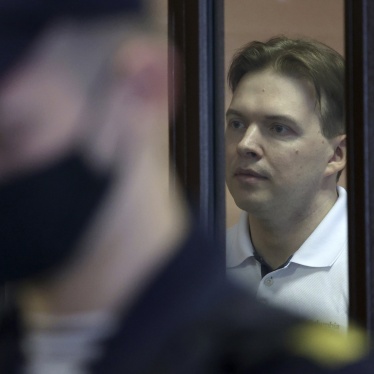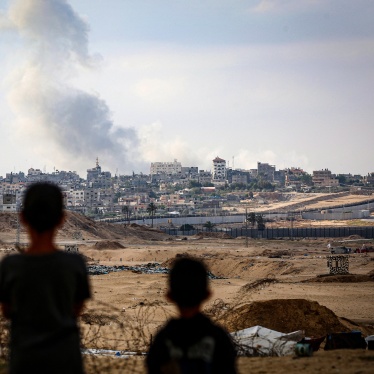This week the EU will hold its first summit with Russia since Dmitri Medvedev replaced Vladimir Putin as president. The meeting presents European leaders with a much-needed opportunity to set a new tone in their relationship with Moscow.
Russia's international prominence resurged under Putin, but atrocities in Chechnya continued and Putin also rolled back many key civic gains of the glasnost era by stifling independent voices in the media and civil society. But with the vision of cold winters without Russian gas never far from European leaders' minds, and Putin increasingly petulant at any criticism, the EU began to soft-pedal the union's core values, labouring under the misperception that talk about human rights would jeopardise Europe's energy and security interests. Russia's choice of holding the summit in Khanty Mansiysk, an oil-rich region in Siberia, may be a not-to-subtle reminder of Russia's economic clout. But the EU and Russia are increasingly interdependent and Russia needs to sell its gas to Europe as much as Europe needs to buy it.
Under Putin, the EU acquiesced in downgrading talk about human rights from the summits to twice-yearly low-level human rights consultations. The next such consultation, in October, will not even include an item on the North Caucasus – where impunity in Chechnya could have been discussed.
Medvedev has spoken out on the need for the rule of law, anti-corruption measures, and a vibrant civil society Even though Medvedev's political independence from his mentor, and now prime minister, Putin, remains unclear, the summit presents a window of opportunity because, well, Putin won't be there. The summit is Medvedev's show. It is a chance for leaders to do what they do when the meet face-to-face: build relationships and trust, discuss issues of shared importance and maybe even build consensus.
The urgency of the issues is undeniable. In 34 rulings, the European court of human rights has consistently found Russia responsible for torture, "disappearances," and extrajudicial executions in Chechnya. While Russia has generally paid out compensation to victims, it has defied the courts' orders to carry out meaningful investigations or to address the underlying causes of abuse. The EU should say to Medvedev, as a friend, that compliance with the courts' rulings could show to both domestic and foreign audiences that Medvedev is his own man and is serious about promoting what Putin once called the "dictatorship of the law" instead of just dictatorship.
The EU should urge Medvedev's to stop government intrusion into NGO work, and selective implementation of laws and regulations to harass organisations that work on controversial issues such as election monitoring and human rights. As an example, authorities in Samara recently subjected Golos, a voters' rights organisation, to a series of intrusive and harassing inspections. The organisation's director was required to undergo drug-testing and a psychological evaluation, and its office shut for three months, ostensibly for fire code violations. Many other groups spend inordinate time and money challenging government warnings and on needless bureaucracy.
The EU is the world's leading collection of democracies, founded on a commitment to liberty and the rule of law. Because Russia is a key neighbour and partner, Russia's respect for these principles are critical to a sound relationship. A democratic and open Russia on the EU's border makes sense both ethically and economically.




